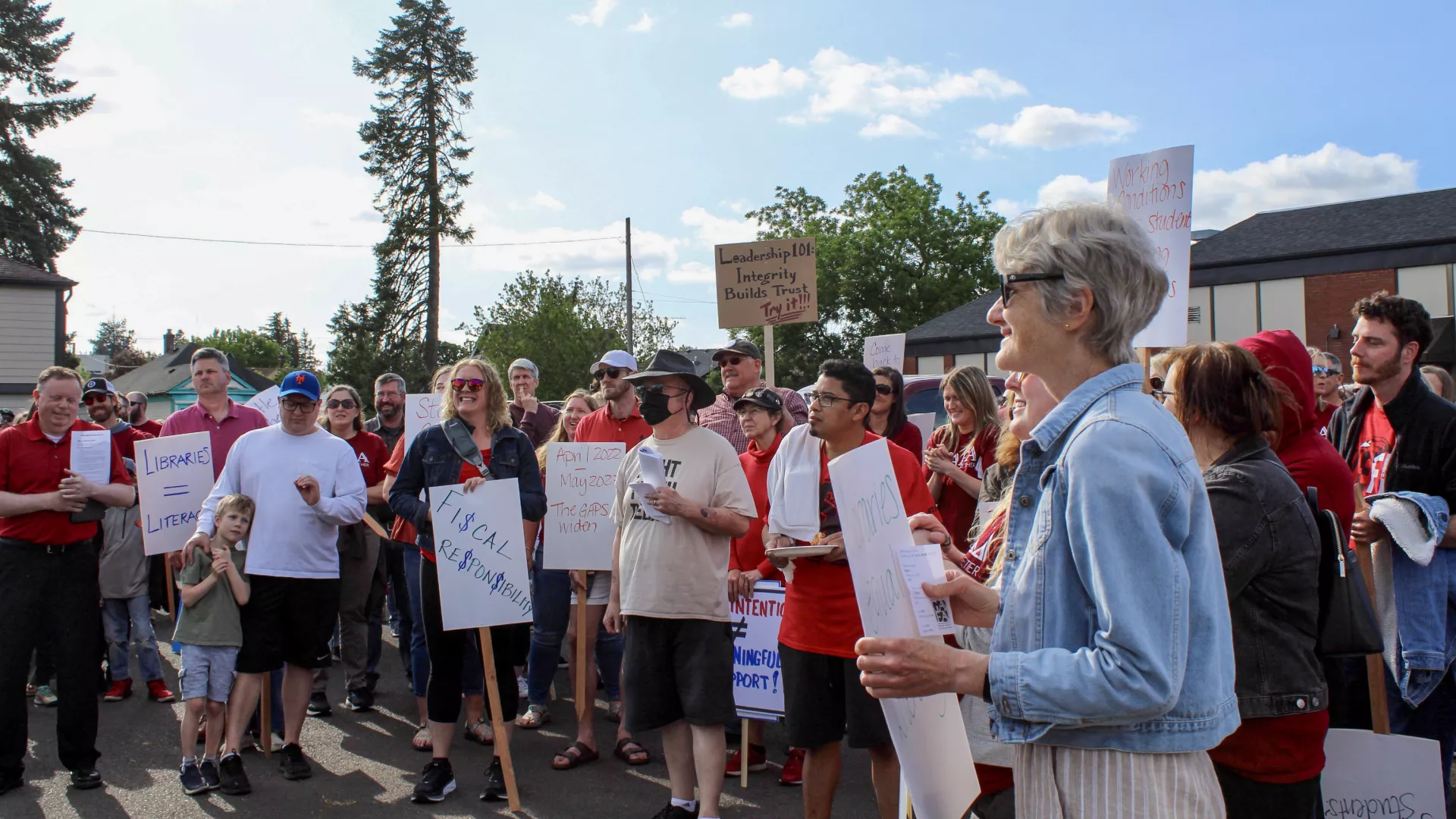In states where more public employees remain members of the union, salaries are higher for all employees because the union has the power to negotiate from a position of strength. More members means a stronger union, which can more effectively bargain for good wages and advocate for good benefits. Hard-earned retirement and healthcare benefits make staying in the profession possible for so many educators.
As individuals, we have a limited impact on decisions that are made in our districts. Coming together as members of a strong union is the best way to have a seat at the table to fight for our students and good working conditions. We join together to amplify our voices to advocate for our students and our professions.
The Oregon Education Association believes in Collective Bargaining and that professional salaries, benefits, duty compensation, non-discrimination policies, grievance procedures, working conditions, and lay-off/recall procedures are necessary components of a comprehensive local contract. The Association also believes that local contracts be established through effective and good faith collective bargaining. Binding arbitration and the right to strike must be an integral part of any collective bargaining process.
Collective Bargaining in Oregon
For school districts, community colleges and other public sector employers, the statute that governs collective bargaining is called the Public Employee Collective Bargaining Act (PECBA). First established in 1973, the PECBA gives Oregon public employees the right to form, join and participate in labor unions. Most public employees also have the right to strike if the bargaining process does not result in a contract (public safety employees cannot strike but have a right to binding arbitration). The Oregon Legislature has recognized that full acceptance of collective bargaining is a benefit to the public.
For an overview of PECBA, go to the website of the Employment Relations Board, the agency that has jurisdiction to enforce the bargaining law.
Who Does OEA Represent in Contract Negotiations?
OEA currently represents approximately 42,000 members in more than 200 local affiliates across the state. OEA locals are made up of members who work in a wide range of job categories and institutions in Oregon's public education system. OEA members come from K-12 neighborhood public schools, Education Service Districts (ESDs), and Oregon Community Colleges. We represent:
- Licensed Educators (e.g. teachers, counselors, specialists)
- Education Support Professionals (ESP) (e.g. instructional assistants, bus drivers, school secretaries)
- Substitute Teachers
- Community College Faculty
Attacks on Collective Bargaining
Some organizations in Oregon and throughout the nation are focused on weakening the power of workers and unions by destroying our rights to collectively bargain. They use underhanded tactics and misinformation to intimidate union members, and spend huge amounts of money trying to elect anti-worker and anti-union legislators.
Freedom Foundation
The Freedom Foundation (aka Opt Out Today) is an extremist political project of a group of right-wing billionaires who see workers’ collective bargaining rights and the political power they create through their union as a threat to their profits and the continued accumulation of their wealth. The organization is funded by millionaires and billionaires who want to dismantle government, cut public services and outsource public jobs to the private sector.
Our union protects the right to a free public education and fights for new investments in our neighborhood public schools. As long as we’re strong they can’t get their hands on the resources our state and our communities are investing in public education.
Learn more about the Freedom Foundation, and how to avoid their scams, using the resources below:
